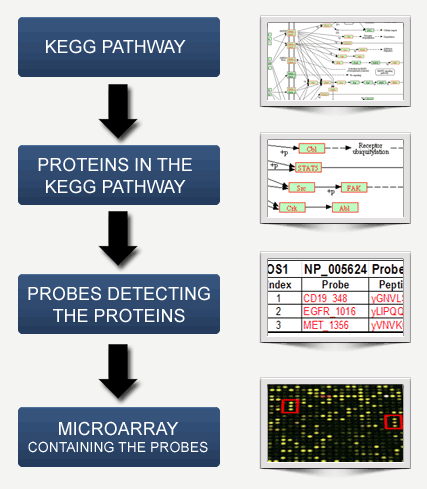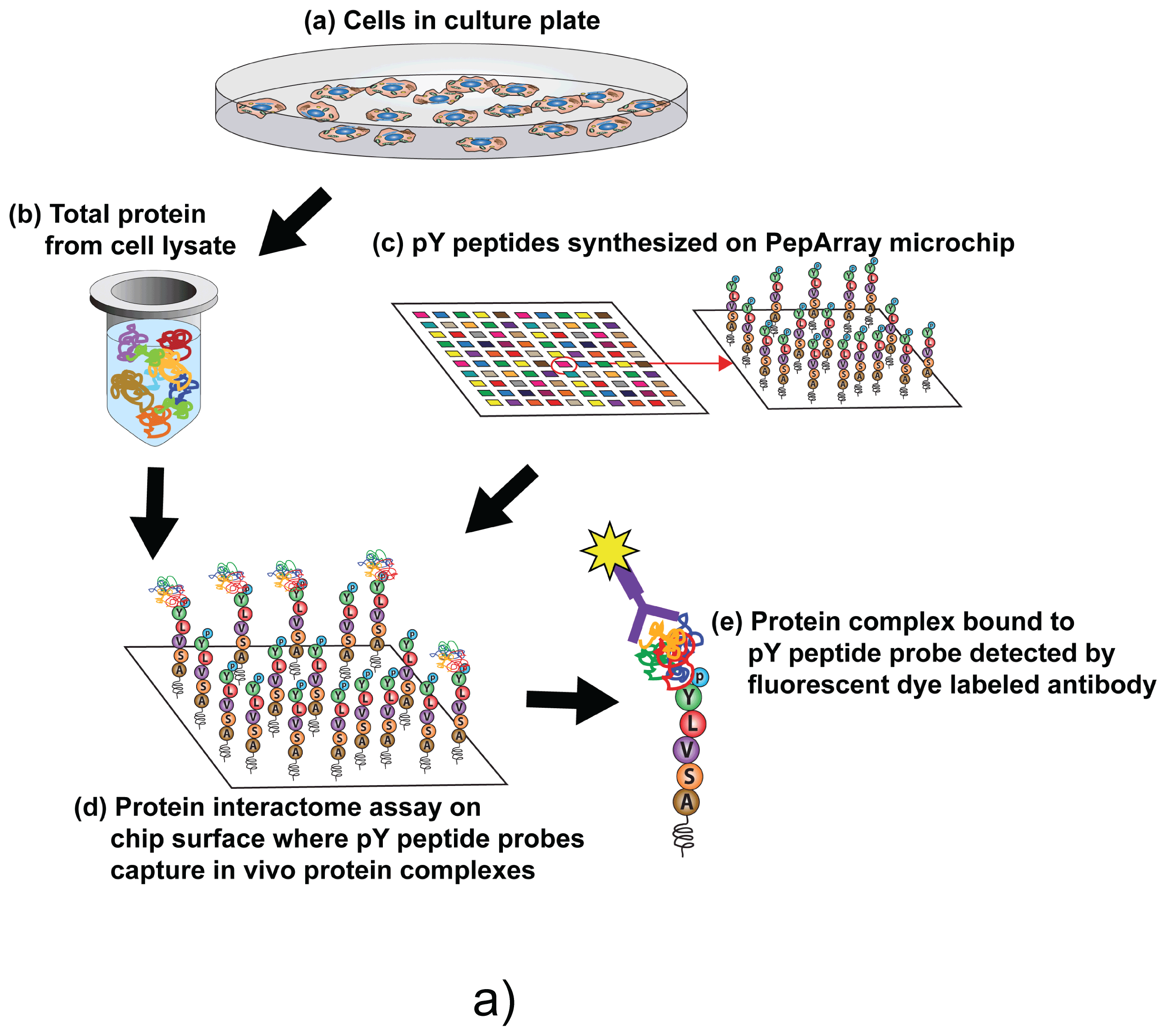By studying entire networks or pathways, we can better understand the underlying structure of cell signaling networks and how changes in these networks may affect the flow of biological information. Comprehensive maps of protein networks will lead to identification of nodal signaling protein motifs and open up avenues for better therapeutic intervention strategies.
Studying cell signaling networks enables:
1. Identification of genes and proteins associated with a specific disease
2. In-depth and contextual understanding of the mechanisms of the disease
3. Understanding of how to therapeutically intervene in the disease processes
4. Prediction of drug targets
Applications
| Perform drug discovery |
| Assess drug efficacy and/or toxicity |
| Reveal signaling and potential cross-pathway effects of drug candidates |
| Assess exposure to environmental factors (for example, toxins, infectious agents, or radiation). |
| Differential profiling of pathway proteins in normal versus diseased tissue |
| Compare protein expression in various systems |
| Study various changes in pathway events |
Our Comprehensive Service
This is a comprehensive Cell Signaling Network Protein Profiling Service. Just send us your cell sample(s) and we’ll perform all the necessary functions from sample assay to data analysis. Our comprehensive service includes: assistance with project designs, synthesis of a custom phosphopeptide binding – peptide microarray, all on-chip binding reactions, detection of the bound proteins using a suitable method, array image scan, and data analysis.
Workflow
Select your KEGG pathway or pathway(s) of interest. We can detect all pathway proteins containing an SH2 binding domain. Our µPepArray Pro web tool contains panels of phosphotyrosine peptide probes specific for each of the pathway proteins. The PepArray™ microfluidic chip technology enables the total customization of content on each individual microarray to suit your needs. Data analysis is performed with our SVM-PEPARRAY software, the online KEGG & DAVID databases and other tools.
Peptides are synthesized on-chip, not pre-synthesized and spotted. We can synthesize a completely custom one-of-a-kind cell signaling microarray specifically for your experiment delivering results that cannot be achieved with an off-the-shelf assay. With the ability to program new sequence designs on the fly, you can quickly revise microarray design and content to keep experiments moving forward based on previous results.
Select your KEGG pathway or pathway(s) of interest. We can detect all pathway proteins containing an SH2 binding domain. Our µPepArray Pro web tool contains panels of phosphotyrosine peptide probes specific for each of the pathway proteins. The PepArray™ microfluidic chip technology enables the total customization of content on each individual microarray to suit your needs. Data analysis is performed with our SVM-PEPARRAY software, the online KEGG & DAVID databases and other tools.
Peptides are synthesized on-chip, not pre-synthesized and spotted. We can synthesize a completely custom one-of-a-kind cell signaling microarray specifically for your experiment delivering results that cannot be achieved with an off-the-shelf assay. With the ability to program new sequence designs on the fly, you can quickly revise microarray design and content to keep experiments moving forward based on previous results.

Featured Customer Publication
The published work describes the use of our phosphopeptide microarray to explore the possibility of identifying phosphoproteins that are pivotal in eliciting cellular responses during the process of normal cells becoming cancerous. These phosphoproteins have the potential as biomarkers to detect early cellular responses as a signature of cancer initiation and progression. (read more…)



